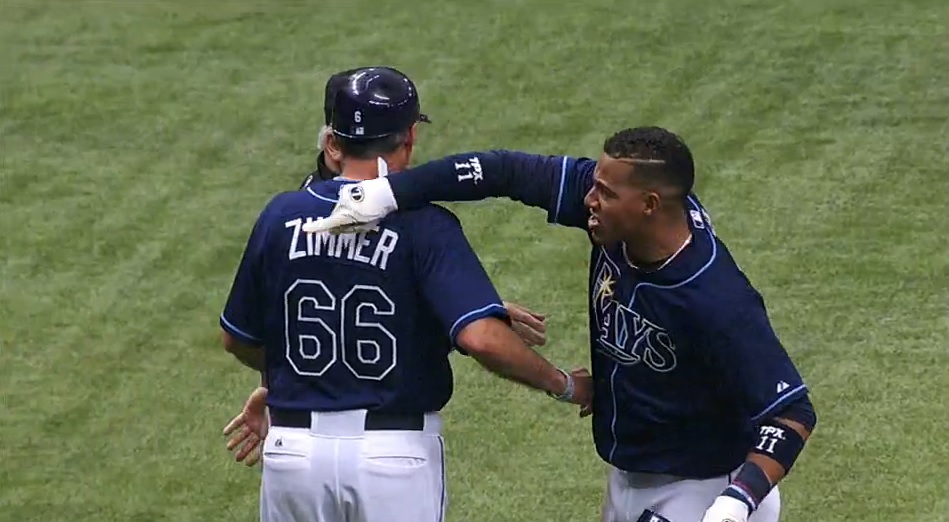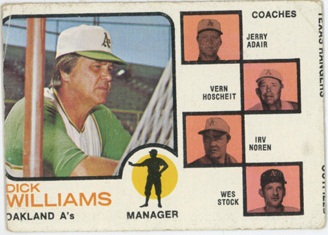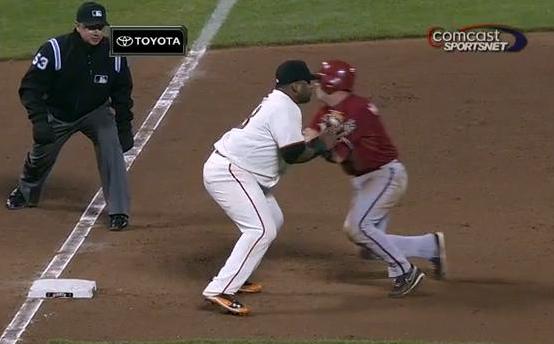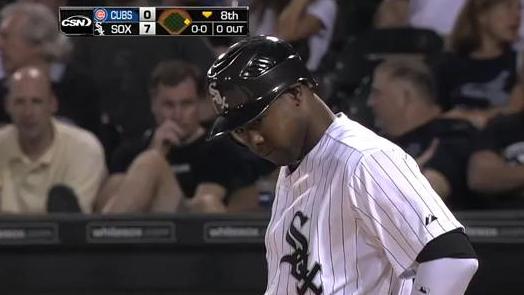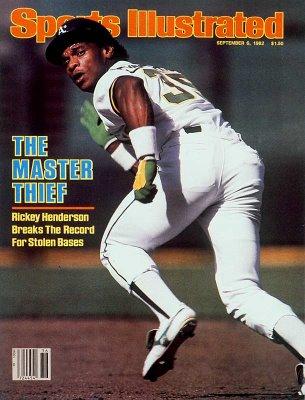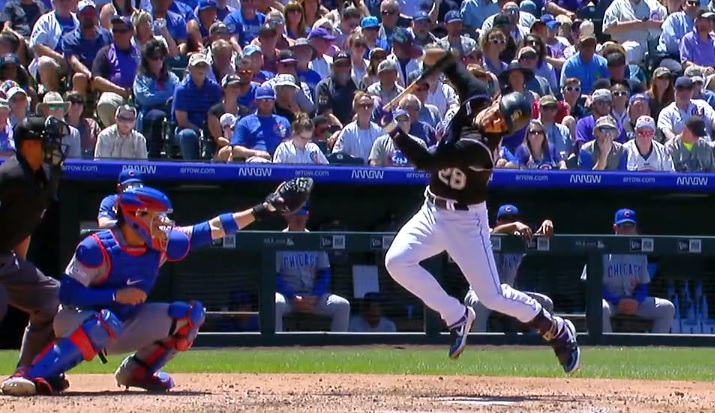
There were beanballs galore in Denver this week. On Monday, Rockies catcher Tony Wolters was drilled by Yu Darvish. Kris Bryant was plunked twice on Tuesday, perhaps spurring him to take Wednesday off. Despite Joe Maddon’s public insistence that he didn’t think Bryant’s beanings were intentional, the Cubs grew further steamed on Wednesday when a head-high fastball from Antonio Senzatela forced Javy Baez to the dirt in the top of the third. Intentional or not, that’s an awful lot of inside pitches in a short span of time, even for a team like the Rockies, known for working the inside corner. For Chicago starter Cole Hamels, it was the final straw.
In the bottom half of the frame, Hamels drilled Nolan Arenado near his left elbow, a blow that eventually forced the third baseman from the game. Arenado knew exactly what had happened, and got up steaming. “When we buzzed Baez’s tower …” he said after the game in an Athletic report, “I had a feeling it would be me.”
Though tensions were high, no warnings were issued. This made sense. Colorado had taken several shots, and Chicago responded. The circle appeared to be complete.
That lasted until the seventh inning, when Rockies reliever Brian Shaw plunked Hamels in the ankle. It had every hallmark of intention: Two outs, the bases were empty, and the Cubs led, 8-0. With that, hostilities resumed.
An inning later, Rockies reliever Phillip Diehl, in his second-ever big league appearance, drilled Anthony Rizzo in the backside, again with two outs and the bases empty. This was enough to finally draw warnings from plate ump Roberto Ortiz, which left the Cubs unable to respond directly—an especially unpalatable circumstance given that it was the final time the teams will face each other this season.
So the Cubs got creative. Enter the unwritten rules.
It started when Rizzo, on first after being drilled, stole second. This would have been a clear violation of the Code had not it so clearly born a message of discontent. (So uncontested was the steal—Rizzo was not even being held on by first baseman Mark Reynolds—that it was ruled defensive indifference.) Any other time, somebody choosing to run at such a point in a game with that kind of score would become a target. As it is, by the time these teams next meet, the play will hardly be remembered among the litany of everything else that went down.
Ultimately, Rizzo’s advancement didn’t make a bit of difference when Baez, blasted a 460-foot home run into the left field bleachers. Baez is known for his playfulness afield, but he took his time watching this one, and there was nothing playful about it. First, he stared down Diehl. Then he stared down the ball, lingering in the batter’s box before taking several slow, deliberate steps toward first in the early part of his trot. Between Baez and Rizzo, it was a pair of the most obvious messages of discontent one could imagine short of actually drilling somebody.
In the bottom of the ninth, Chicago reliever Brad Brach hit Wolters for the second time in the series, but somehow was allowed to remain in the game despite Ortiz’s prior warnings. Wolters ended up dishing out some Code-based lessons of his own, taking both second and third on defensive indifference before coming around to score on a groundout by Chris Iannetta. That only reduced Colorado’s deficit to 10-1, however, and even then, Baez, who fielded Iannatta’s ball, considered gunning Wolters out at the plate before making the smart play to first.
The final tally had six Cubs hit by pitches during the six games between the teams this season, the Rockies three. That’s on top of the 96-mph German Marquez fastball that hit Bryant in the helmet last season. (That Marquez hit Bryant again last week at Wrigley Field prior to Bryant’s two HBPs on Wednesday didn’t help matters.)
The only way these teams will see each other again in 2019 will be in the playoffs, which Arenado promised after the game “would be a spicy series.” Would it ever.
